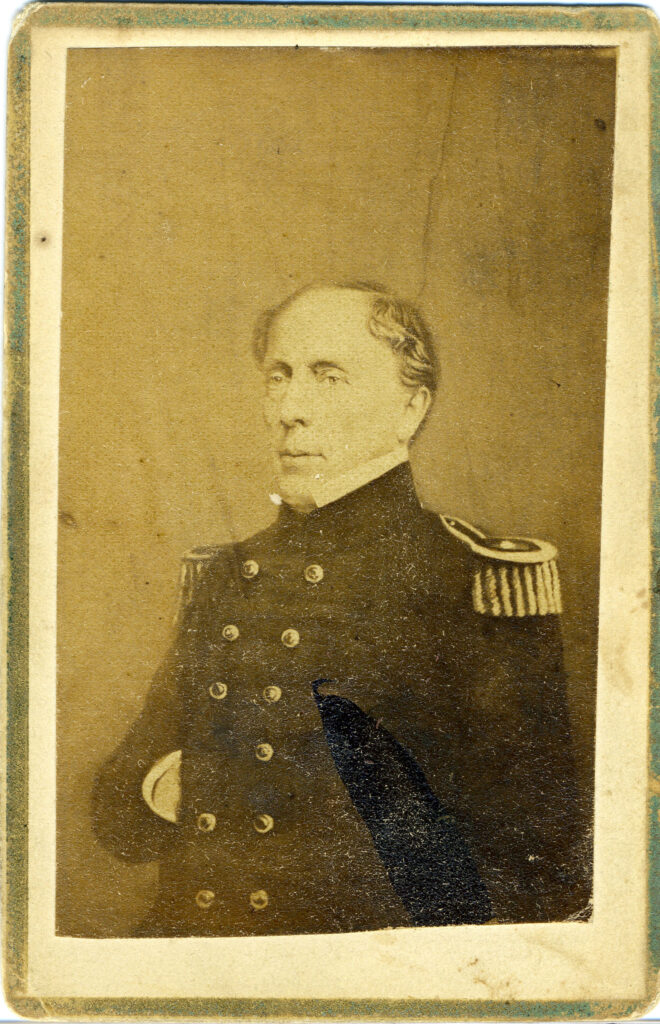Section #22 - The Southern States secede and the attack on Ft. Sumter signals the start of the Civil War
Chapter 265: The South Begins To Gear Up For War
December 21, 1860
South Carolina Demands The Surrender Of Federal Property Including The Charleston Forts
Governor Francis Pickens wastes no time in taking charge over his “independent commonwealth.”
He sets up four committees, assigned to deal with engaging other slave states, finalizing a constitution, overseeing commercial matters and preparing to deal with foreign governments.
On December 21 he also names three envoys to negotiate with Washington over transferring all federally owned property in South Carolina to state control – including the customs house, post office, armory and forts in Charleston.
Prior to their departure, Pickens has already forwarded a letter on the matter to Buchanan that comes as another ultimatum, demanding that South Carolina troops be allowed into Ft. Sumter, and giving the President 24 hours to reply.
This letter not only shocks Buchanan, but also Senators Jefferson Davis and John Slidell and strategist Congressman Milledge Bonham. Their shared fear is that warfare will break out before the South has had time to properly prepare.
Together they apply pressure on Pickens to withdraw the letter, and he grudgingly agrees to do so.
However, by the time a conciliatory telegram from the Governor reaches Buchanan, he has already drafted a reply, consistent with his State of the Union principles, but delivered now with surprising temerity:
If South Carolina should attack any of these forts, she will then become the assailant in a war against the United States.
The President is greatly relieved by withdrawal of the ultimatum, responds by pocketing his response, and indicates his willingness to hold meeting with the South Carolina party, but only as “private citizens,” not as official envoys of a foreign government.
He also convenes a meeting of his revised cabinet to discuss the military situation in Charleston. This results in a vague and waffling message to Major Anderson, drafted by new Secretary of State, Jeremiah Black and signed by Secretary of War, John Floyd:
Exercise sound military discretion…It is neither expected nor desired that you should expose your own life or that of your men in a hopeless defense of these forts.
December 22, 1860
Secretary Of War John Floyd Accused Of Conspiring With The South
More bad news visits Buchanan on December 22, this time regarding his Secretary of War, John Floyd.
Floyd is a genial man, well-liked by all, but with a reputation for sloppy financial management going all the way back to his days as Governor of Virginia. Whether he is corrupt or merely inept has been an open question, but now some $870,000 worth of government bonds held in trust for Indian tribes are missing after a War Department audit.

What’s even worse, however, is evidence that Floyd has been shipping a steady stream of armaments to the South. In the Spring of 1860 he sends them 105,000 muskets and flintlocks along with 10,000 new rifles. This is followed in the Fall by a request for 10,000 additional weapons from secessionist South Carolina Governor William Gist. Here Floyd agrees to the sale as long as it is carried out in secrecy.
Taken together, critics conclude that he is engaged in treason and they demand that Buchanan fire him.
The President asks for Floyd’s resignation, but he requests time to clear his name. This lasts for six more days, during which time he issues military orders which move more arms and troops into Southern states.
The end comes on December 28, when he tenders his resignation under the face-saving guise that his advice on managing the situation in Charleston is no longer being followed.
Charges of fraud and conspiracy are brought against Floyd in March 1861, but a DC court exonerates him. Instead the blame bleeds over onto Buchanan, who is accused even more vocally of being a puppet for the South.
After the war breaks out, Floyd will be named a Brigadier General in the Confederate Army, and given command of Ft. Donelson, a critical garrison on the Tennessee River. There he demonstrates his ineptitude as a military man when the fort falls in February 1862, and he is permanently relieved of field duty.